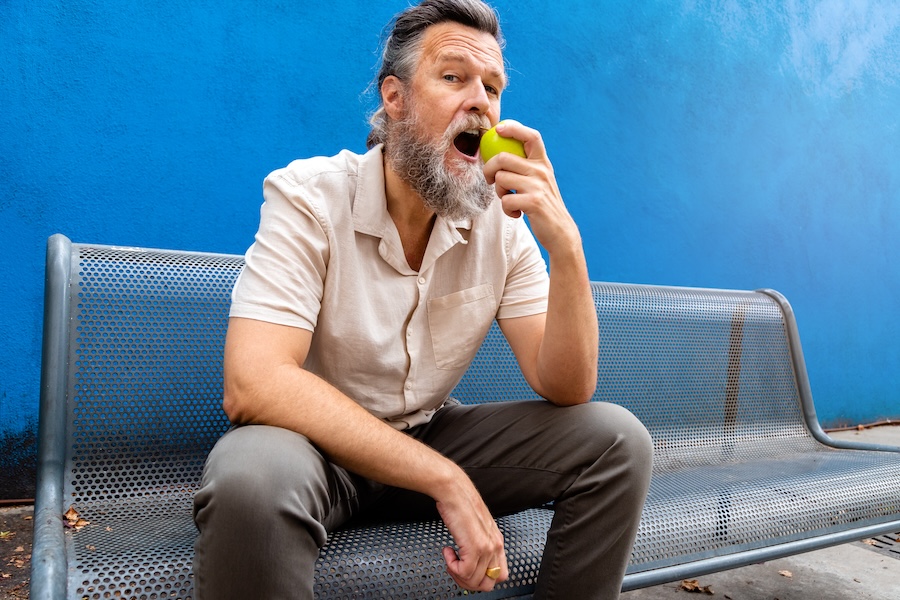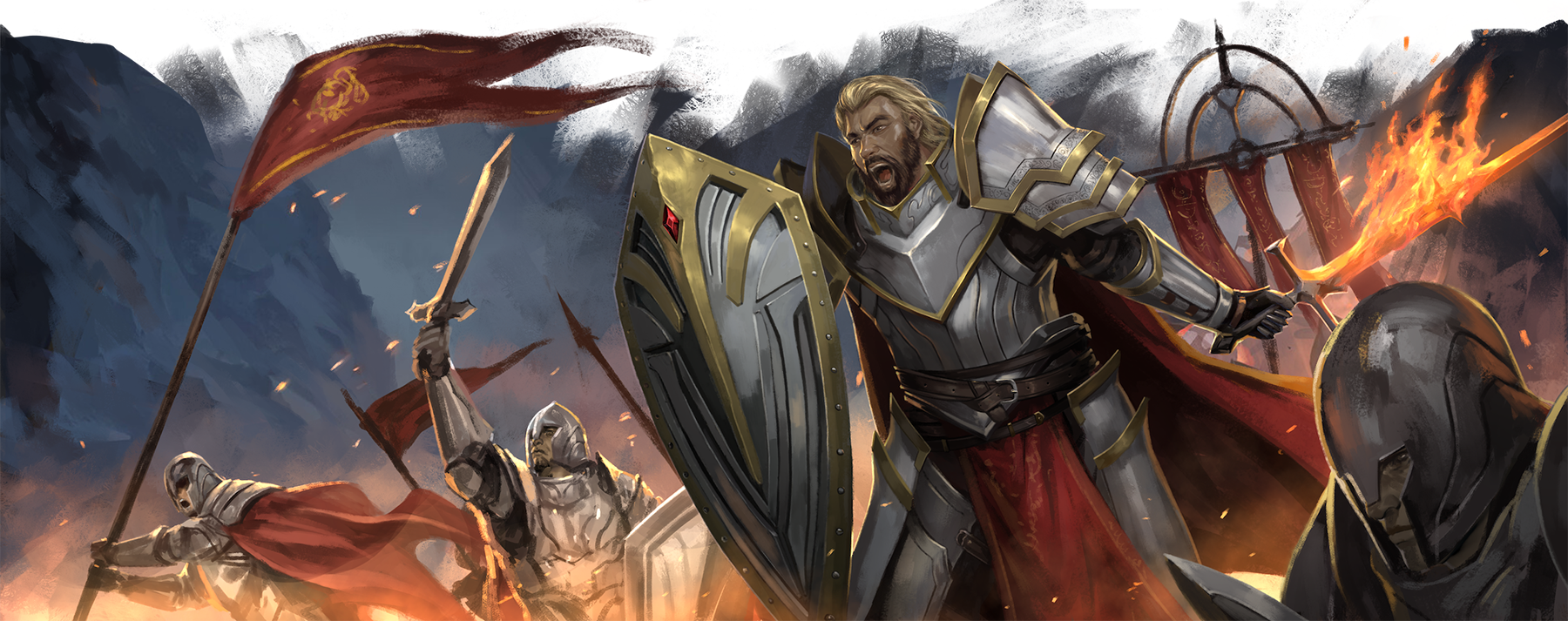Best Foods for a Healthy Beard
 Medically Reviewed
Medically Reviewed
 Joe Nightingale, MBBS, MSc
Joe Nightingale, MBBS, MSc

Steaks. Eggs. Beer. Surely, only the manliest of manly foods can trigger an incredible bout of beard growth. The kind of beard growth diet that would sustain Chuck Norris through a hard winter. Throw in a bit of caribou, a big pile of jerky, and the tears of your defeated opponents, and you’ll have a beard thicker than a bear’s fur.
Unfortunately, the reality isn’t nearly as awesome. We’re often asked what foods help with beard growth. Some say your diet doesn’t really matter. However, there’s a wealth of scientific evidence saying otherwise. You need to maximize the key micro- and macronutrients that fuel beard growth to see tangible benefits.
The result? A thicker, more luscious mane of facial hair. Plan your beard growth diet with the best foods for a health beard. Read on to learn more.
In this guide:
- Essentials Nutrients for Beard Growth
- Best Beard Growth Diet
Essentials Nutrients for Beard Growth

Let’s start with the basics: beard growth, like any other part of your body, relies on a selection of micro- and macronutrients to support growth. These nutrients are used by your hair follicles to create high-quality hair that appears shinier and healthier than otherwise. If you’re deficient in any of these nutrients, you’ll find your beard grows slower and the hair is more brittle, drier, and more likely to break.
So, what are these magical nutrients? Here are our recommendations:
Macronutrients
Macronutrients are the major food groups we continuously consume. While we joked about eating steak and eggs, protein is a key component of beard growth. Most people don’t eat nearly enough protein per day; instead, filling up their calories with carbs. But carbs don’t fuel beards.
Here’s what you should eat:
- Proteins: Hair is primarily composed of keratin, a fibrous protein. Adequate protein intake is necessary for the synthesis of keratin, which contributes to the structural integrity and strength of hair strands. Amino acids found in proteins act as the building blocks for keratin production.
- Fats: Essential fatty acids, particularly omega-3 fatty acids, play a key role in the health of the skin that surrounds each hair follicle. They are integral to the lipid barrier of the skin, helping to maintain hydration and elasticity, which supports healthy follicle function.
Micronutrients
In addition to the major food groups, there’s a ton of vitamins and minerals that support your body’s normal functioning. A deficiency in any of these micronutrients can have disastrous effects. Slow hair growth – particularly the beard – is one of the earliest signs of a nutritional deficiency.
- Vitamin D: Crucial for hair follicle cycling, particularly by promoting the transition of hair from the resting phase to the growth phase, thereby supporting the anagen phase, which is critical for hair growth.
- Biotin (Vitamin B7): This vitamin helps boost hair health by improving the body's keratin infrastructure. It facilitates essential enzyme activities that aid in the metabolism of fats, proteins, and carbohydrates, necessary for healthy hair.
- Vitamin A: Plays a key role in the production of sebum, the natural oil secreted by the scalp that prevents hair from drying out and breaking off. It also helps maintain and repair skin tissues that support hair follicles.
- Vitamin C: An antioxidant that not only protects against oxidative stress but also is vital for the synthesis of collagen, a protein that strengthens the capillaries supplying blood to the hair shafts.
- Zinc: Supports hair tissue growth and repair. Zinc is also important for maintaining the oil glands attached to your hair follicles, thus helping to keep the hair and scalp adequately lubricated and healthy.
- Iron: Facilitates the transport of oxygen in the bloodstream to the scalp and hair follicles. Adequate iron levels are essential for hair cell turnover and regeneration.
One of the most common deficiencies in the Western world is Vitamin D. It’s not directly related to your diet – most Vitamin D is produced due to sun exposure. The average Caucasian needs around 15-30 minutes of sun per day to generate enough Vitamin D. That number rises the darker your skin tone is – it’s a real problem for dark skinned people living in northerly latitudes.
The solution? Well, as for most of these nutrients, taking a supplement is a sensible way to increase your intake. Vitamin D is relatively cheap – it’s a must-have during the winter months.
Best Beard Growth Diet
1. Eggs

Eating eggs is a fantastic source of protein. But it’s not really the protein you’re after – it’s the cholesterol. Listen to most medical professionals, and you’d think cholesterol was the worst thing in the world. It’s not. In fact, it’s essential for the production of sex hormones like testosterone.
Consuming a few eggs every day (or every few days) will boost your testosterone levels and give you a healthy serving of micronutrients. Indeed, you’ll find plenty of vitamin D and biotin in eggs.
2. Nuts and Seeds
Nuts and seeds are one of the few foods deserving of the title superfood. Rich in almost every micronutrients and a healthy source of omega-3 fatty acids, these foods help nourish hair and promote growth.
Perhaps the most important micronutrients you’ll receive are zinc and selenium. As with most of the ingredients in this list, these two micronutrients boost testosterone levels. Zinc, in particular, helps with your sperm count. So, you won’t just look manlier – you’ll be manlier.
3. Spinach

Spinach is an absolute must-have ingredient. Simple to cook and low on calories, it packs a mighty micronutrient punch. You’ll often hear about spinach’s iron content. It’s true it does contain a lot of iron – although your body doesn’t absorb it as easily as animal sources.
That being said, it’s full of vitamins A and C, which produce sebum, the natural oil that moisturizes your beard hair, preventing dryness and breakage.
4. Red Meat
Red meat, like steak, is the best source of iron available. Your body readily absorbs the iron from your colon as its highly similar to the iron in your body. Of course, red meat is a brilliant source of protein. It contains many of the amino acids you need to survive – and grow a healthy mane.
Lastly, red meat contains saturated fat. As mentioned earlier, this type of fat is much needed for testosterone synthesis. That’s why we tend to associate big hulking chunks of meat with masculinity – there’s always an explanation!
5. Oily Fish

Oily fish, such as salmon and mackerel, is one of the healthiest sources of natural fats. Salmon and mackerel contain far more omega-3 fatty acids than you’d find in your average supplement – plus, your body absorbs it better.
Alongside these fats, you’ll get plenty of protein and an assortment of micronutrients. Salmon, for example, contains vitamin D, B vitamins, selenium, and zinc – most of which are required for healthy beard growth.
6. Raisins
Raisins might seem like an unusual addition to your beard growth diet. But don’t doubt the science. Raisins are one of the few sources of boron – a micronutrient critical in testosterone production. Little wonder then that raisins are ideal for boosting testosterone levels, which, in turn, skyrockets your beard growth.
The other great thing about raisins? They’re sweet. If you’re trying to eat healthily, it’s hard to avoid processed foods and sweet snacks. Create a nutritious trail mix full of raisins, seeds, and nuts to fight the cravings and pack more nutrients into each load of calories.
- Olive Oil
7. Olive Oil

Olive oil has been popular since the time of the ancient Greeks. Considering they were renowned for their beards – and hairiness continues to this day in the Mediterranean – it’s safe to say olive oil fuels beard growth.
The question is how. Well, it serves as a healthy source of monounsaturated and saturated fats. If consumed regularly, it boosts testosterone levels by up to 17%. One particular component, oleuropein, is an antioxidant which soothes any inflammation. This ensures your body is functioning in peak condition.
8. Cruciferous Vegetables
Cruciferous vegetables – think broccoli, Brussel sprouts, or cabbage – contains a special compound called indole-3-carbinol. It might not sound exciting, but it flushes estrogen from your body and blocks the enzyme aromatase.
The result? You guessed it – it raises testosterone levels.
9. Oranges

You might not think of oranges when considering beard growth, but they're actually a top pick! The secret? The fructose in orange juice reduces SHBG levels, boosting free testosterone and DHT, which help thicken and strengthen hair. Plus, OJ ramps up thyroid activity and supplies essential vitamin C, all great for sprouting a fuller beard.
10. Alfalfa Sprouts
Lastly, alfalfa sprouts. You’re forgiven if you’ve never heard of this ingredient. It’s a sort of cress-like plant that you can add to your salad. What makes it so special is its ability to skyrocket testosterone levels. In one study, adding just 50 g of alfalfa sprouts to their daily diet led to a 21% increase in DHT and a 14% increase in free-testosterone within a month. Pretty impressive, right?
